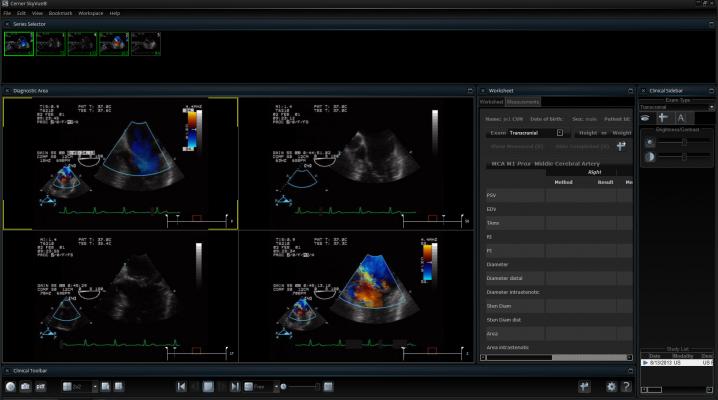
February 17, 2015 — Certain types of chemotherapy are associated with heart issues known as cancer therapeutics-related cardiac dysfunction. However, symptoms don’t appear until the issue is already advanced and potentially deadly. Experts at Baylor College of Medicine say early screening and monitoring using echocardiograms could be the key to helping cancer survivors stay heart-healthy and get their life back.
These recommendations are part of an expert consensus statement from a consortium of doctors and researchers published recently in the Journal of American Society of Echocardiography. The report is from the American Society of Echocardiography and the European Association of Cardiovascular Imaging.
“Oncologists do an excellent job of finding the right treatments for each type of cancer,” said Juan Carlos Plana, M.D., associate professor of medicine and director of the cardio-oncology center at Baylor. “But cancer treatments are harsh and can affect the heart in different ways for each person. That is why cardiologists should be part of the care team for at-risk cancer patients.”
What doctors should be monitoring for, Plana said, is left ventricular ejection fraction (LVEF), the measurement of how much blood is being pumped out of the main pumping chamber of the heart. A decrease in the pressure of each squeeze during or after cancer treatment means that cancer therapeutics-related cardiac dysfunction is more likely to occur down the line.
“We reviewed past studies and patient cases and found that a drop by 15 percent of strength over the course of treatment, with measurements starting before treatment and continuing after treatment, is an indication that there will be heart problems down the line,” said Plana, who also is lead author on the published recommendations. “That is why it is important to get a baseline test before treatment starts, and continue being tested periodically depending on your doctor’s recommendation. Early detection means intervention can begin before it is too late.”
Plana added that additional monitoring of global longitudinal strain, which looks at the function of myocardial fibers, also has been shown to help predict future cancer therapeutics-related cardiac dysfunction. Myocardial fibers are sensitive to the restriction of blood flow and wall stress and are a good indication that blood flow through the heart is not functioning normally.
“These indications of heart trouble down the line don’t necessarily have noticeable symptoms. In fact, the heart can adapt and compensate for lack of function to a certain degree, but you are basically living on the edge,” Plana said.
For more information: www.onlinejase.com


 June 19, 2024
June 19, 2024 








